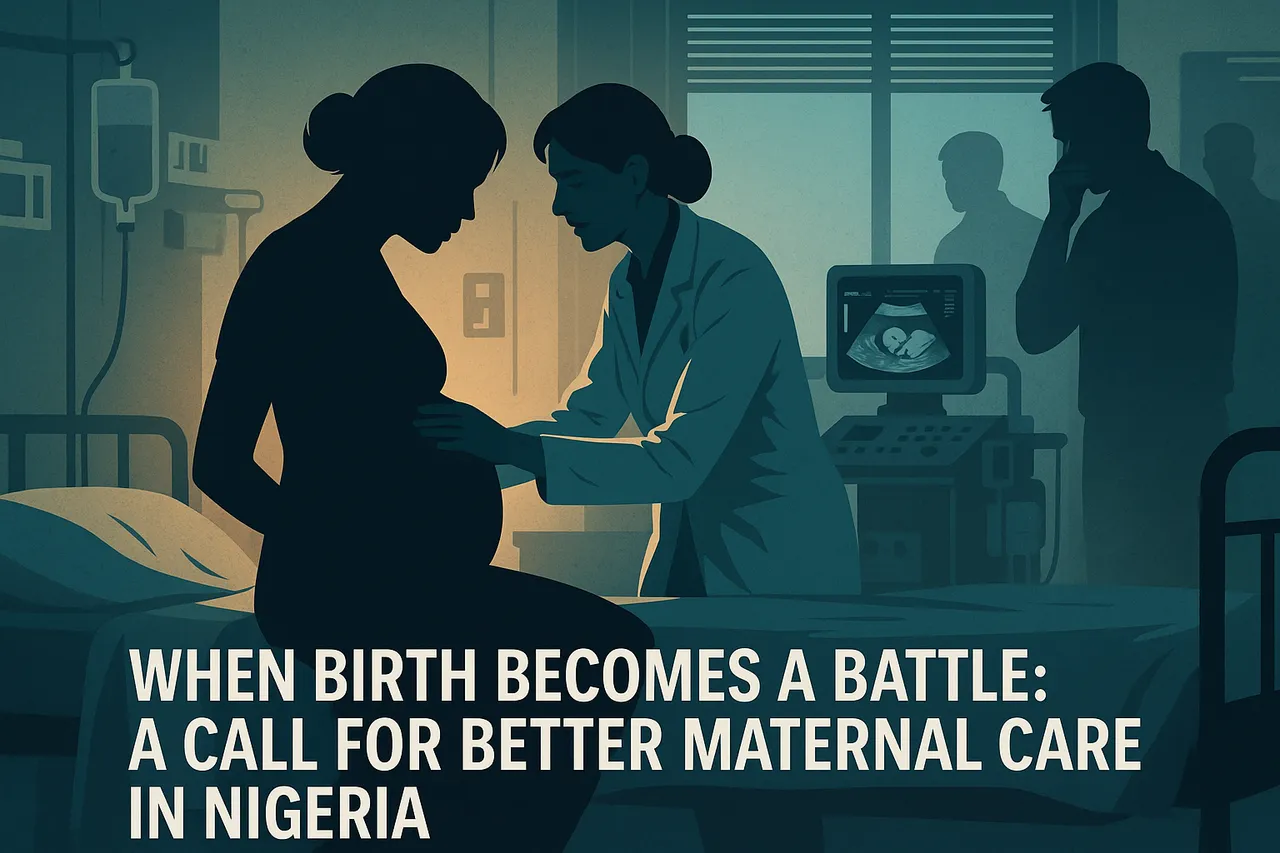Two days ago, I found myself reliving a trauma I thought I had buried deep in the folds of time. It wasn’t my wife this time, I lost her years ago to complications during a Caesarean section, but the resemblance was too striking for comfort. A family friend, pregnant and due any day, had been in labour for what felt like an eternity. As the hours ticked by, worry turned into panic. The baby simply wouldn’t come. It was only after an emergency C-section that the truth was revealed. The baby had been in the occiput posterior position — facing up — a condition that makes vaginal delivery much more complicated and prolonged.
And just like that, I was back in that dark hospital room from years ago, watching my wife's life slowly ebb away despite modern medicine’s promises.
You see, this whole ordeal could have been avoided, or at the very least anticipated, with a simple ultrasound scan before active labour began. Yet, here we were, again at the mercy of oversight. Thankfully, the mother survived this time. But I can’t help but ask, how many Nigerian women don’t get that lucky? How many lives are lost every day due to negligence or a healthcare system so accustomed to “managing” that it forgets to prepare?
Facing Up: Understanding the Baby’s Position
The position of the baby during delivery isn’t just a fun fact for eager parents, it’s a critical factor in determining how smoothly a labour will go. In the occiput anterior position, the baby’s head is down and facing the mother’s back — the ideal scenario for a natural birth. However, when the baby is in the occiput posterior position, facing the mother’s belly, it increases the risk of prolonged labour, maternal exhaustion, and emergency surgical intervention.
In developed healthcare systems, late-stage ultrasounds or even quick bedside scans are routinely done as the mother approaches term. This is the way it was for the birth of our own babies. The scans help doctors anticipate and manage such complications before they become emergencies. It is sad to see that some medical personnel, like the one who handled this woman's case, still fail at this simple precaution. After all, it's not that there are no ultrasound machines all around.

The Cost of Assumption: Medical Negligence or Just the Norm?
Let’s call it what it is. Not performing critical scans in the final hours of pregnancy is a form of negligence. No matter how qualified a doctor is, failing to gather basic information about a patient’s status, especially when that information could save lives, is indefensible. We don’t even need high-tech machines. Portable ultrasound devices are widely available and affordable. What’s lacking is the will, or perhaps the sense of urgency.
According to a 2023 WHO report, Nigeria still accounts for nearly 20% of global maternal deaths. That’s staggering. While poverty, infrastructure, and access to healthcare are often cited as culprits, another silent killer lurks beneath - clinical complacency. Too many practitioners rely on experience rather than evidence. Too many health facilities still treat maternal care like a gamble rather than a guarantee.
When Every Minute Counts
Labour is a race against time. The longer it stretches, the greater the risk there is for complications like fetal distress, uterine rupture, and post-partum hemorrhage. In my friend’s case, her prolonged labour was not just painful but life-threatening. Had the C-section been delayed a little longer, we may have been mourning another needless loss.
What struck me most during the chaos was how everyone seemed surprised by the baby’s position. It’s 2025. How are we still in the business of being surprised in the delivery room? If we can detect cancer in its early stages and even predict potential genetic disorders before birth, then surely, we can tell whether a baby is facing up or down.
A Wake-Up Call to Medical Professionals
This post isn’t an indictment — it’s a plea. To the doctors, nurses, and midwives who dedicate their lives to bringing life into this world. Please don’t skip the details. Every scan, every test, and every question matters. These aren’t luxuries, they’re lifelines.
Also worthy of mention are policymakers. Maternal healthcare needs to be treated with the same seriousness as national security. Equip our hospitals. Train our staff. Penalize gross negligence. Maternal mortality isn’t just a medical issue but a human rights issue.
The Power of Vigilance and Empowered Patients
Mothers-to-be and their families also have a role to play. Ask questions. Demand scans. Don’t be afraid to challenge the “we’ll manage it” mindset. Your life and your child’s life depend on it.
We need a culture shift from reactive care to preventive care, from assumption to attention. That shift starts with acknowledging that every pregnancy is high-stakes, and there are no small mistakes in maternal care.
Not Another Blog About Maternal Mortality
I thank God I’m not writing another eulogy today. But I write with urgency because, somewhere in Nigeria tonight, another woman is lying on a hospital bed, in labour, facing the very same risks. And if nothing changes, some husband, some child, some friend will have to carry her memory instead of her smile.
Let’s stop taking maternal care for granted. Let’s equip our hospitals, educate our caregivers, and empower our women. Because every life brought into this world deserves to be welcomed with joy, not with mourning.
Resources
- World Health Organization – Maternal Mortality
- UNICEF – Maternal and Newborn Health in Nigeria
- The Lancet Global Health – Maternal mortality in Nigeria
- National Library of Medicine – Factors contributing to maternal mortality
- Punch Nigeria – Maternal mortality: Doctors must prioritize patient evaluation